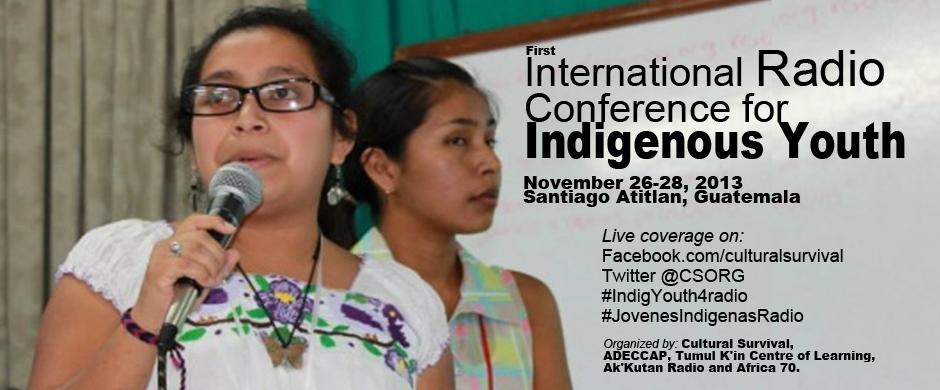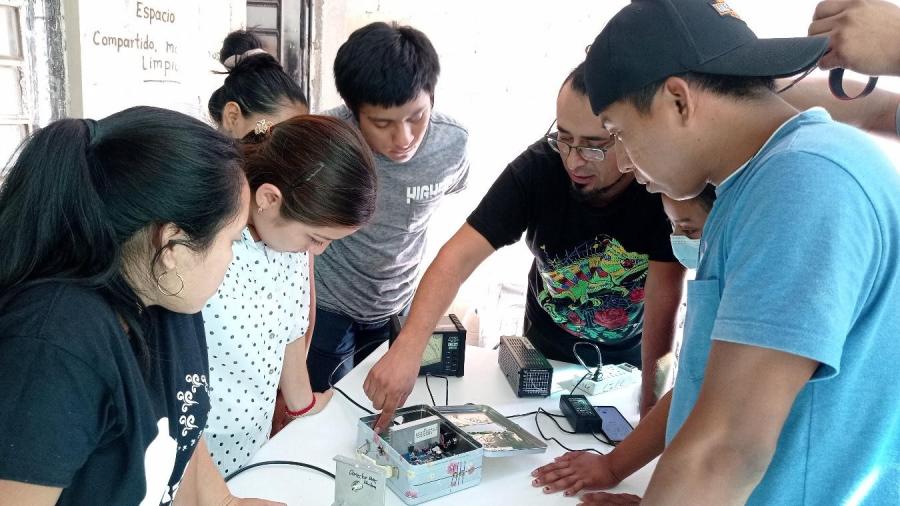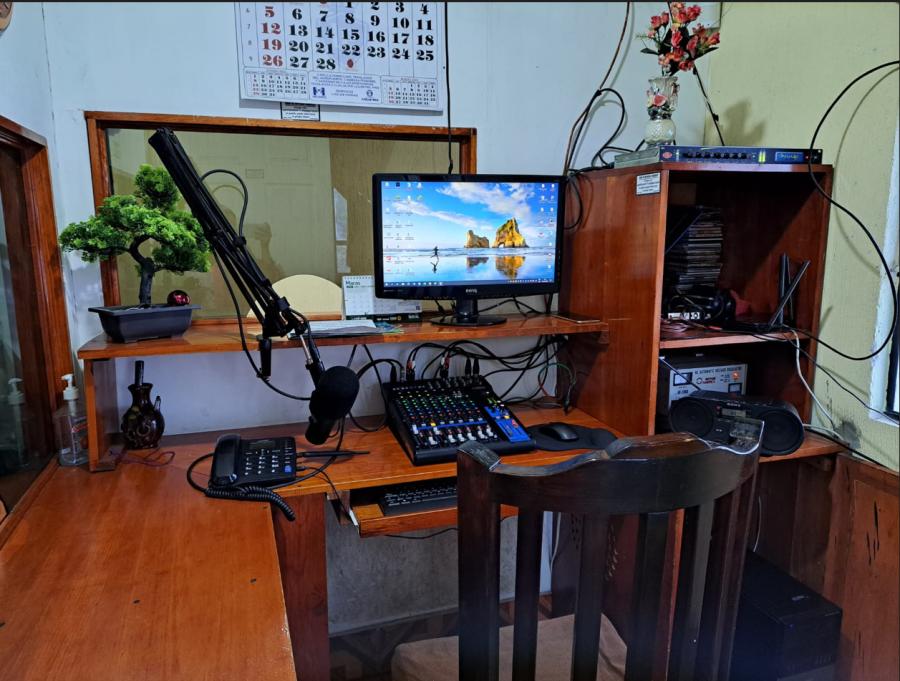
Agnes Portalewska, culturalsurvival.org, agnes@culturalsurvival.org,
Santiago Atitlan, Guatemala (November 26, 2013). On November 26-28, 2013 over 80 Indigenous youth from Guatemala, Belize, and El Salvador are gathering at the First International Radio Conference for Indigenous Youth in Santiago Atitlan, Guatemala. The conference addresses how to use community radio as a tool for improving participation and integration for Central American Indigenous youth, with a focus on the eradication of social exclusion through the reclamation of Indigenous values and languages.
The value community radio brings to Indigenous people is innumerable. In Guatemala, community radio is the best tool to provide rural, Indigenous Guatemalans with the news and information that they need. In many cases, community radio is the only medium that reaches people who are illiterate or do not speak Spanish. In Guatemala the literacy rate in people's first spoken language is less than one percent. In a second language it is still only five to fifteen percent. Fifty percent of the Guatemalan Indigenous population is illiterate. In El Salvador Indigenous people again have worse literacy rates, with 78 percent of Indigenous people being non-literate. Community radio stations, which broadcast locally in Indigenous languages provide a crucial venue for educational programs, local, national, and international news, and health and emergency information. They instill pride in a community's heritage and keep local languages strong and relevant. Special Rapporteur on the Rights of Indigenous Peoples, James Anaya, on World Radio Day 2012 said, "Radio has been a fundamental means for Indigenous Peoples to maintain their languages and to exercise and defend their rights."
Indigenous people and youths nationwide constitute a significant portion of their respective countries' populations. In Belize, Indigenous Maya constitute over 10 percent of the population and the Garifuna constitute over 6 percent. Sixty percent of the population is 24 years old or younger. In Guatemala, there are 21 different Maya groups which together constitute a majority of the population, close to 60 percent. Fifty-nine percent of the Guatemalan population is 24 years of age or younger. And in El Salvador 10 percent of the population is Indigenous, while youths 24 years old or younger constitute 50 percent of the total population.
Organized by Cultural Survival, an Indigenous Peoples rights organization based in Cambridge, MA, in coordination with three other Indigenous rights organizations, ADECCAP, Tumul K'in Centre of Learning/ Ak'Kutan Radio and Africa 70, the conference's agenda is primarily participatory, with an emphasis on doing rather than watching, and learning from one another rather than learning from above. The youth will be practicing their interviewing skills and taking part in investigative journalism in the community of Santiago Atitlan, Guatemala. They will be investigating topics that are important to their communities, and that they will have chosen themselves based on group discussion. They will be interviewing community members, radio experts, and leaders of organizations to create programs, which they will present during a youth press conference that will be held on the final morning of the encounter.
These youth will be learning about the history of armed conflict in their countries and relating these events to the lived realities of their communities today. It is crucial that these youth are knowledgeable about the history of their communities in order to make connections with the current discrimination and exclusion that the communities experience. By understanding their pasts, they can begin to have a more complex understanding of the present.
"The message that Cultural Survival's Community Radio Project is aiming to share with these youth through this conference is that by participating in radio, they can help to improve integration not only within their communities, but also with Indigenous communities from other countries," says Angelica Rao, conference organizer. By learning about the shared histories of their Indigenous communities from Belize, Guatemala and El Salvador, these youth will have a more concrete understanding that they are not alone in their struggle, and that there is a greater historical, cultural and political context to their individual experiences. Finally, by using community radio as a tool, they will be able to share this knowledge with youth from their communities and neighboring communities, multiplying awareness.
The conference is made possible through the generous funding of FLACSO Costa Rica, FLACSO El Salvador, PNUD, Unión Europea, and PAIRCA II.
Watch Live http://www.ustream.tv/channel/fomento-juvenil and follow on @CSORG and facebook.com/culturalsurvival.
###


